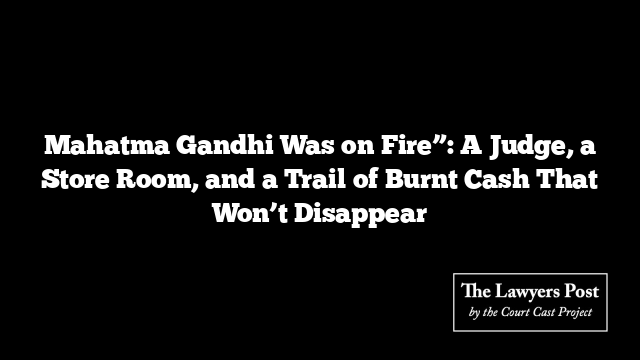In a ruling that lands hard on cricket’s most powerful board, the Bombay High Court has delivered a decisive verdict: the Board of Control for Cricket in India (BCCI) must pay up. The Court has upheld an arbitral award exceeding ₹538 crore in favour of the now-defunct Kochi Tuskers Kerala franchise, calling time on the BCCI’s legal manoeuvres to escape the payout.
Justice RI Chagla, who authored the ruling, made it clear that courts are not arenas for a second-innings replay of arbitration findings. “BCCI’s attempt to reargue the case under the guise of judicial review is beyond the narrow scope allowed by Section 34 of the Arbitration Act,” he said, shutting down arguments that challenged the merits of the arbitrator’s decision.
Kochi Tuskers, a franchise that appeared in just one IPL season in 2011 before being booted out the following year, was axed for allegedly failing to submit a bank guarantee on time. But the arbitrator—and now the Court—found that BCCI’s abrupt termination was a breach of contract, not the franchise’s fault.
Behind the scenes, the franchise—first awarded to a consortium led by Rendezvous Sports World (RSW) and later run by Kochi Cricket Private Limited (KCPL)—struggled with issues like stadium availability and regulatory delays. Despite this, BCCI continued to accept payments before suddenly pulling the plug and cashing in on an older guarantee from RSW.
That’s when KCPL and RSW launched arbitration proceedings in 2012. In 2015, the tribunal sided with them, ordering BCCI to cough up over ₹384 crore to KCPL and return ₹153 crore to RSW—with interest and costs piling on.
Unwilling to let the matter rest, BCCI challenged the ruling, arguing that KCPL’s failure to submit the bank guarantee constituted a fatal breach of the franchise agreement. They also insisted that the tribunal had awarded excessive and duplicative damages, and claimed the arbitration itself was invalid under partnership laws.
The High Court wasn’t buying it. Justice Chagla ruled that BCCI’s own conduct—continuing dealings and accepting payments—effectively waived the guarantee deadline. As for claims about legal overreach or invalid arbitration, the Court saw no merit.
“The arbitrator’s finding that BCCI waived the requirement under Clause 8.4 of the agreement is supported by the record. There’s no fault to be found,” the judgment declared, calling the arbitrator’s decision well-reasoned and grounded in law.
Notably, the Court also dismissed BCCI’s attempt to pit loss of profits against wasted expenditure, affirming that both categories of damages were appropriately awarded based on investment loss and lost opportunity.
While BCCI has been granted six weeks to file an appeal, KCPL and RSW are now free to withdraw the awarded sums.
The legal teams for both sides read like a who’s who of India’s litigation elite, but in the end, the verdict was clear: BCCI’s innings, at least in this courtroom, is over.





